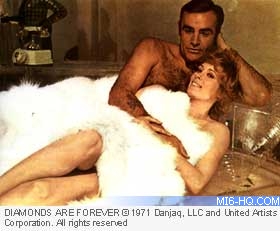My wife used to work for her publishers, Transworld and met her many times. Truely good books. Check out your local charity shops, they may have some in stock.
I see them in charity shops regularly, I'm just easily distracted by other things
My wife used to work for her publishers, Transworld and met her many times. Truely good books. Check out your local charity shops, they may have some in stock.
I see them in charity shops regularly, I'm just easily distracted by other thingsOh your good lady working for the publishers must've helped feed your book habit?
Definitely, I've books to keep me going for years. I joke to her that we live in an annexe to the the British library.
A house without books is like a room without windows. No man has a right to bring up his children without surrounding them with books, if he has the means to buy them.
Horace Mann.
This would suit you.
View attachment 25217
 That's pretty cool. Reminds me of the fish tank bed in Diamonds Are Forever, though this ones cooler.
That's pretty cool. Reminds me of the fish tank bed in Diamonds Are Forever, though this ones cooler.
And better than a water bed - me no likeyI think I'd get seasick. Cool though.



Aaron, For your delectation, I give you "Airlords of Airia". Enjoy some Steampunk fun.
[video=youtube;211LNk5vnJM]http://www.youtube.com/watch?v=211LNk5vnJM[/video]
I've been doing a bit of wildlife photography actually
(mods Wasn't sure if this was the right place to post this, please move if not)View attachment 25168


Four famous Colins Firth (1960), Jackson (1967), Farrell (1976), Murray (1977)
Origins
Colin has multiple origins. Its an Anglicised form of the Gaelic name Cailean (or Coileáin) and a variation of the Norse name Koli (meaning 'dark').
But its also a shorted derivative of Nicolas (Col with in added, just as Robert became Robin), and a variant of Colle, itself the shortened French form of Nicholas.
Popularity
Colin was in the top 100 list in England and Wales for most of the 20th century - indeed, it was top 25 in the 30s to the 60s - but was out of favour by the late 80s.
These days, its more popular elsewhere particularly Ireland, and in the NorthEast and Upper Midwest of America.
In fact, it made the top 100 in each of the three years to 2005 in the US, presumably inspired by General Colin Powell who led the US invasion of Iraq and insists on the pronunciation as 'KOH-lin'.
Aaron
Gender: Boy
Origin: Hebrew, Arabic
Meaning: From the Arabic meaning "forest", "thicken", "strength". Also from the Hebrew har-on meaning "mountain of strength".
Popular in: US, UK, Spain, Germany, Ireland
Facts: Aaron Copland, American classical composer was born in 1900. Aaron was the middle name of rock singer Elvis Presley.
Peter
Gender: Boy
Origin: Greek
Meaning: From the Greek petros, meaning "stone" or "rock".
Popular in: UK
Facts: Peter the Great was the first emperor of the Russian Empire.
Huon
Huon as a boy's name is of Hebrew origin, and the meaning of Huon is "God is gracious". Variant of John, probably via Juan.[/QUOTE
What about Bob:sadwavey:
